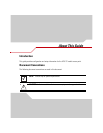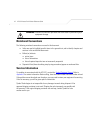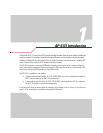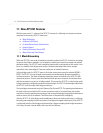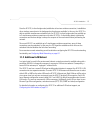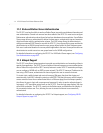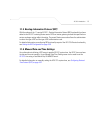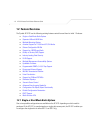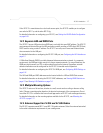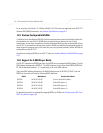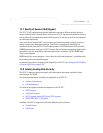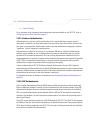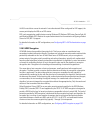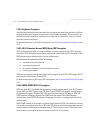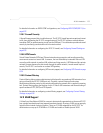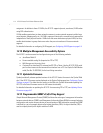
AP-5131 Introduction
1-7
If the AP-5131 is manufactured as a dual-radio access point, the AP-5131 enables you to configure
one radio for 802.11a, and the other 802.11b/g.
For detailed information on configuring your AP-5131, see Setting the WLAN’s Radio Configuration
on page 5-45.
1.2.2 Separate LAN and WAN Ports
The AP-5131 has one LAN port and one WAN port, each with their own MAC address. The AP-5131
must manage all data traffic over the LAN connection carefully as either a DHCP client, BOOTP client,
DHCP server or using a static IP address. The AP-5131 can only use a Power-over-Ethernet device
when connected to the LAN port.
For detailed information on configuring the AP-5131 LAN port, see Configuring the LAN Interface on
page 5-1.
A Wide Area Network (WAN) is a widely dispersed telecommunications network. In a corporate
environment, the WAN port might connect to a larger corporate network. For a small business, the
WAN port might connect to a DSL or cable modem to access the Internet. Regardless, network
address information must be configured for the AP-5131’s intended mode of operation.
For detailed information on configuring the AP-5131’s WAN port, see Configuring WAN Settings on
page 5-14.
The LAN and WAN port MAC addresses can be located within the LAN and WAN Stats screens.
For detailed information on locating the AP-5131 MAC addresses, see Viewing WAN Statistics on
page 7-2 and Viewing LAN Statistics on page 7-6.
1.2.3 Multiple Mounting Options
The AP-5131 rests on a flat surface, attaches to a wall, mounts under a ceiling or above a ceiling
(attic). Choose a mounting option based on the physical environment of the coverage area. Do not
mount the AP-5131 in a location that has not been approved in an AP-5131 radio coverage site survey.
For detailed information on the mounting options available for the AP-5131, see Mounting the
AP-5131 on page 2-11.
1.2.4 Antenna Support for 2.4 GHz and 5.2 GHz Radios
The AP-5131 supports several 802.11a and 802.11b/g radio antennas. Select the antenna best suited
to the radio transmission requirements of your coverage area.



